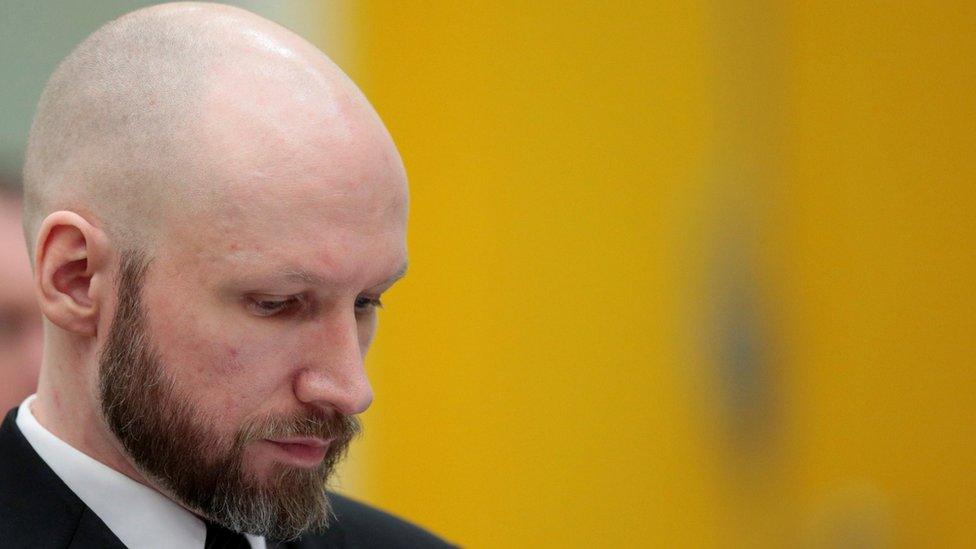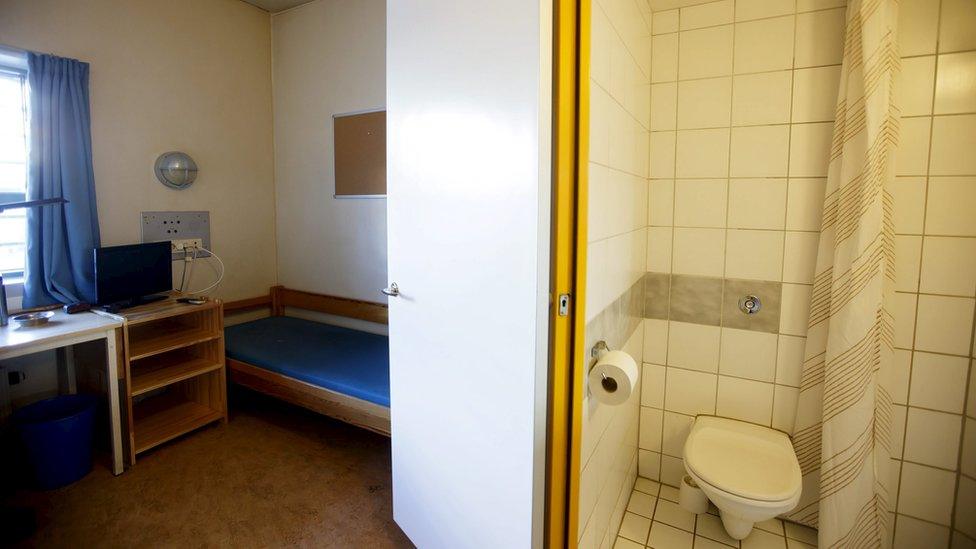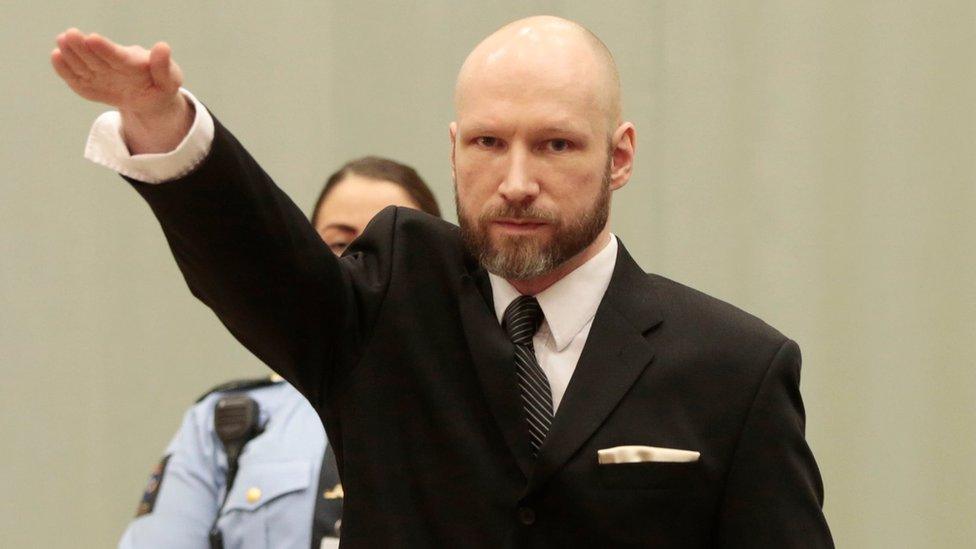Norway fights Breivik 'inhumane' prison conditions claim
- Published

The Norwegian government is appealing against a ruling that some of Anders Breivik's (pictured) treatment in prison was 'inhumane'
Norwegian mass murderer Anders Behring Breivik is more radical than ever, prosecutors warned as the right-wing extremist appeared in court.
Fredrik Sejersted said the government should still be prepared for Breivik, who gave a Nazi salute on entering the courtroom, to do the unthinkable.
The state is appealing against a ruling that some of Breivik's treatment in prison amounted to "inhuman or degrading treatment or punishment".
Breivik killed 77 people in July 2011.
He murdered 69 people at a summer camp for young centre-left political activists on the island of Utoeya after, earlier in the day, setting off a car bomb in the capital Oslo, killing eight people.

A typical cell in Skien prison looks like this
The 37-year-old has been kept in solitary confinement since he was sentenced, in 2012, to 21 years in prison - but he has argued that being kept away from other prisoners for 22-23 hours a day breaches his human rights.
Breivik's lawyer Oystein Storrvik has said the killer is "mentally vulnerable" because of his prison conditions.
In April 2016, a Norwegian court upheld part of his claim, although it dismissed his argument that his right to respect for private and family life was violated by restrictions on contact with other right-wing extremists.
On Tuesday, the Norwegian government - which was also ordered to pay Breivik's legal costs of 330,000 kroner ($38,500; £31,600) - began the process of appealing against the court's ruling.
'Most dangerous man'
The government argued that his three-cell complex, where he can play video games, watch TV and exercise, is better than the conditions of most other prisoners to compensate for being kept in solitary confinement.
"The core of the state's view is very simple, there are no human rights violations," said Mr Sejersted, the prosecutor, said.
He told the court that Breivik "has not broken down, he has not expressed remorse, he is proud of what he has done.
"If anything, according to documentation, he is even more convinced in his extreme far-right beliefs."
"It's very difficult to know how dangerous Breivik is today and it's even more difficult to know how dangerous he will be tomorrow, or in a year, or in 10 years," Mr Sejersted also told the court.
"But what is absolutely certain is that in the years leading up to July 22, 2011, he was the most dangerous man in Norway."

Breivik gave a Nazi salute, which the judge described as "disturbing"
To prove his point, Mr Sejersted added that his mother had noticed nothing different about him in the days leading up to the murders.
The hearing is set to last six days, and Breivik has agreed not to perform a Nazi salute again after Judge Oystein Hermansen described the gesture as "offensive to the dignity of the court" and "disturbing".
This is not the first time the mass killer has performed the salute in court.
He is scheduled to address the court on Thursday, with a verdict due in February.